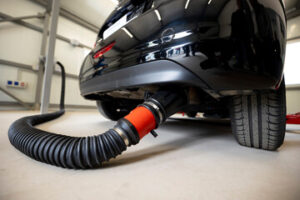Hunting gloves protect hands from the elements, and many come with features designed to boost dexterity. These include insulated gloves for cold conditions; conductive thumbs and fingers that work with smart devices; and other features.

For example, the Sitka Gradient glove is a lightweight liner that minimizes insect bites and helps shooters maintain their grip on equipment. It’s also ideal for early-season shoulder season. Explore high-performance gear at Bugle For Elk for hunters.
The material used in hunting gloves plays a big role in how comfortable, flexible and durable they are. The type of material also influences how warm the gloves are, how breathable they are and what kind of protection they offer. For instance, some hunters may want a specialized fabric that minimizes tick and mosquito bites while others prefer a certain kind of leather for cold-weather hunting.
The Drake MST Refuge Gore-Tex Double Duty Decoy Glove is ideal for duck hunters because it offers a combination of warmth and breathability. Its breathable outer layer repels snow and rain, while its Gore-Tex membrane keeps your hands dry. It also features a goat-leather palm, an elasticized wrist, a webbing cinch for a secure fit and more.
Another insulated glove option is the Mechanix Specialty TARIUS. Its IR protective fabric is paired with water-resistant kid leather, making it a great choice for snipers. Its patented tensioning device helps to relieve pressure on the trigger finger, which gives the hunter confidence behind the trigger. Its perforated trigger finger also helps to prevent fatigue while aiming.
Many of the gloves on this list offer a good balance between warmth and dexterity. They’re thick enough to keep your hands from freezing while you’re waiting in a shivering duck blind or frigid pheasant field, but they still offer the dexterity needed to operate a gun or bow and make precise adjustments to a load.
If you’re on a budget, consider the BlackOvis San Juan Fingerless Wool Gloves. These gloves can be worn as a liner to add extra warmth or as a warm outer glove in cold conditions. They’re a good choice for bow hunters or those who need to use their hands for close-range work like handling game or climbing ladders.
Design
The material used in hunting gloves affects how they look and feel, their durability and their overall performance. Leather is a popular option that offers strength, flexibility and suppleness, but it can be more expensive than other materials. Synthetic options also offer a number of benefits, including comfort and warmth. The type of glove a hunter chooses will depend on the kind of game they’re going after, and their preferred weapon. They may want gloves with targeted warmth, such as half fingers for the index and thumb, or a lightweight design that’s easy to wear with a gun. The weather and the season also influence the type of glove a hunter chooses.
While a waterfowler’s needs will differ from those of an upland bird hunter, all hunters need a rugged and waterproof design that can combat the cold. A glove with a Gore-Tex membrane protects hands from rain, snow and other elements. Other essential features include a secure fit, touchscreen compatibility and an effective camo pattern.
Proper care of gloves is also important to extend their life and maintain their functionality. Depending on the type of gloves, this can be as simple as washing them regularly with mild soap and avoiding exposure to direct sunlight or heat sources. Some types of gloves may require specialized cleaning or storage, but all should be thoroughly cleaned and dried before being stored for long periods of time. Doing so will help prevent damage, alterations in the fit and cracking of the leather. In addition, it’s wise to keep extra gloves in your bag or truck for emergencies. They’ll come in handy if you get cold hands while in the field or need to field dress your kill.
UPF 50+ Protection
The sun’s UV rays can be damaging to the skin, and many hunting gloves now offer UPF 50+ protection. This is a great addition to any hunting glove, especially those that are designed for use outdoors.
The type of protection offered by hunting gloves depends on the material and design. For example, leather gloves are very durable and offer good protection against cuts and abrasions. They are also breathable and can help regulate temperature in cold weather. Other types of material, such as polyester and synthetic materials like GORE-TEX, are also used in the construction of hunting gloves. These materials are more flexible and offer better dexterity than leather gloves. They are also waterproof and can withstand rain and snow.
Heated hunting gloves are another option for keeping hands warm in cold weather. These gloves feature a heating element that can be activated using a small battery. They are available in different levels of warmth, and some have a 3-level adjustable heating system. Heated gloves are more expensive than regular hunting gloves, but they are a good choice for those who want to stay comfortable in the backcountry.
When choosing a pair of hunting gloves, you should consider your needs and the climate where you hunt. If you hunt in a warm climate, you may not need the added warmth of insulated gloves. However, if you hunt in a cold climate or in the late season, you will need gloves that are thick and warm enough to keep your fingers toasty.
Extensions
Choosing a pair of hunting gloves that fit comfortably and offer adequate extension is critical to ensuring proper grip on the firearm or bow you are using. The extension allows for a precise and secure hold on gear, weapons and targets and will help you perform your best on the field.
A good pair of hunting gloves will also offer the protection that is needed to keep your hands warm while hunting. Some brands of gloves come with an additional layer of insulation that adds extra warmth, while some feature a warm fleece cuff to provide added coverage and protection for the wrist area. Many gloves are also designed to be breathable and lightweight, making them ideal for warmer weather hunting conditions.
Some hunters prefer a pair of gloves that are fingerless and designed to offer more dexterity when handling equipment or other accessories. This can be especially important when it comes to operating electronic devices like binoculars or GPS equipment, which typically require a more nimble touch than a traditional glove would provide. In addition to providing more flexibility and dexterity, some fingerless hunting gloves also come with a fold-over mitten cover that can be pulled over the fingers for added warmth when necessary.
Some of the most popular choices in a pair of hunting gloves are leather, which provides excellent protection against natural annoyances like thorns and briars. However, the thickness of leather often compromises dexterity, and can make it difficult to work small buttons or zippers. For a more flexible option, try a pair of gloves made from synthetic materials that are both breathable and durable.
Touchscreen Compatibility
The touchscreen compatibility of hunting gloves is a useful feature that helps you to keep up with your GPS or call in a bird dog. It also allows you to use your smartphone without removing the glove. If you have a pair of touchscreen compatible hunting gloves, you can use them with a special app called AnyGlove. This application turns any regular glove into a touchscreen compatible glove. The application is available for iOS and Android devices. It’s free to download, and it’s easy to use.
When choosing a pair of hunting gloves, you need to consider the type of climate you hunt in and your level of activity. For example, if you’re planning on hiking and walking long distances, you should choose a pair of gloves with breathable fabric. This will help you maintain a comfortable temperature throughout your hike. Additionally, you should look for a pair of gloves that are lightweight and waterproof.
While there are many different types of hunting gloves on the market, some are more comfortable than others. For instance, the Attack gloves from Kuiu are made with a smart blend of Pittards’ almost sticky Oiltac leather and Primeflex polyester. This combination makes the gloves grippy and tough. They have a great fit and a velcro wrist cuff to keep them securely on your hands. However, the gloves are not insulated so you might need to wear a liner on extremely cold days.
The UA Scent Control technology in these gloves eliminates human odor, which will prevent you from tipping off game animals to your presence. The gloves are machine-washable and come in four camouflage colors. The palm features anti-slip silicone so you can keep a grip on your gun or phone, and they are available as either a full mitt or fingerless option.

